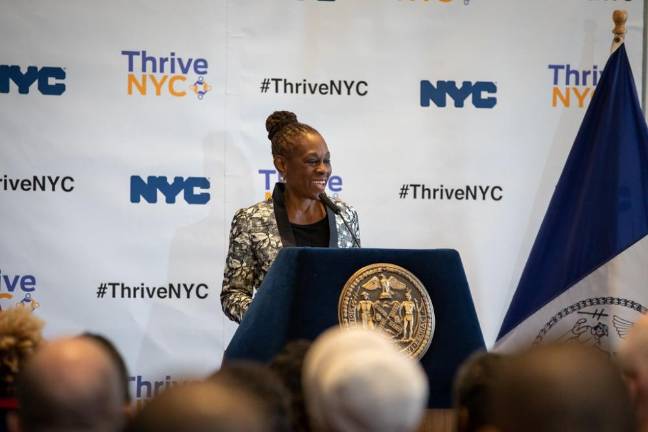Facing a Mental Health Crisis
A police shooting puts the spotlight on efforts by City Hall and the NYPD to address a complicated and longstanding issue

The fatal police shooting of a bipolar man at a Brooklyn nail salon Friday has brought even more scrutiny on the de Blasio administration, which had been facing questions last week about its management of ThriveNYC, the city's mental health initiative, after millions in funding that critics say has provided little in measurable results.
Police were attempting to arrest a man for allegedly urinating inside the Brownsville store when Kwesi Ashun reportedly ran inside and struck an officer in the head with a chair, according to media accounts of the incident. Officers then shot Ashun, 33, six times and he died. The New York Post reported that just 11 days prior to the incident, Ashun was evaluated by city mental health professionals, but was not flagged as a physical threat.
“We obviously are awaiting a full investigation. This is a very, very serious situation,” Mayor Bill de Blasio told reporters Saturday. “This is a very serious situation, but the one thing that we know from the information we have so far is this civilian assaulted a police officer violently and that is not acceptable. I just need to put that front and center.”
A New Approach to an Old Problem
The incident raises questions about whether a new initiative the de Blasio administration announced last week could have helped prevent the death of Ashun and other similar incidents involving encounters between NYPD officers and people who suffer from serious mental illness.
With $37 million in funding, the city will deploy four Health Engagement Assessment Teams (HEAT), which will include one clinician and one “peer,” a person the city describes as someone “who has previously experienced a mental health challenge,” to proactively engage people with the most frequent 911 contacts, and connect them with care options.
Additionally, the city will add six Mobile Crisis Teams composed of clinicians, case managers and peers to “ensure better rapid response time to urgent situations.” Mobile Crisis Teams are sent to people’s homes to provide crisis intervention and connect people to services.
According to The City website, as part of the new initiative police officers will no longer use the shorthand term EDP, for emotionally disturbed person, when referring to calls involving the mentally ill. Instead, they will use the term “mental health call.”
In two “high-need” precincts, the 25th in Manhattan’s East Harlem and the 47th in the northern part of the Bronx, NYPD officers will be paired with mental health counselors during emergency situations that involve those with mental illness.
A Critic of Thrive NYC
City Council Speaker Corey Johnson, however, did not lend his support to the initiative. Rather, he was critical of ThriveNYC, created by First Lady Chirlane McCray, during an appearance on Fox 5’s “Good Day” following the launch of de Blasio’s initiative.
“I have concerns that we need to be doing more for people with serious mental illness. That’s what we need to focus the money on,” he told “Good Day.” “We need to be putting that money into people that people see de-compensating on the subway and on the streets of New York City, who don’t know who they are, who can’t get the help they need.”
Straus News reached out to Johnson, asking for more details on how the city could intervene in the “most severe cases,” but he did not respond by press time.